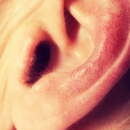
For many parents, finding out their teens are using drugs and alcohol is one of their worst nightmares.
Not only do they find themselves in a position where they have to take action, but many parents may feel as though they’ve failed their children.
But, this behavior isn’t the end of the world, and it can be stopped.
Not sure what to do if you’ve just found out? Don’t worry, we’ve got you covered.
Let’s take a look at the steps you can take.
Inform Your Partner
Before you decide to confront your teen about your behavior, it’s important to inform your partner if they do not already know.
Unfortunately, not every family is fortunate enough to have two parents with the same views. There are many instances where one parent may be outraged while the other may not care quite as much.
But, regardless of personal views, this behavior is unacceptable for a teenager (and dangerous at that).
Therefore, you need to decide with your partner how you are going to confront your child. Furthermore, the two of you should agree not to undermine each other and instead focus on the issue at hand.
Prepare for the Backlash
If your child has decided to use these substances, chances are that they’re not going to be very happy when you confront them.
One of the most common arguments teens use in this situation is declaring that their parents used alcohol and drugs at some point in their lives.
At this point, you’ll need to say something along the lines of “I made those decisions before, but I learned from my mistakes.” This is especially true when it comes to drug use.
If you currently drink or smoke tobacco, make it clear that you are an adult and that regardless of what you do, your teen isn’t old enough to make those decisions for themselves.
There is no excuse for them to behave this way, and you’ll need to ensure they understand that. Just make sure you’re ready for when they argue with you.
Present the Evidence
In addition to deflecting the blame onto you and your past actions, many teens have another common form of defense: denying your accusations.
If they believe that your allegations are based on suspicion and not actual knowledge, they may feel as though they don’t have to accept any form of punishment you try to give them.
But, having evidence with you during the confrontation can turn the tables in your favor. The undeniable proof will eliminate any sort of defense they may have.
But, you’ll have to find the evidence, first.
It may seem strange to go through your teen’s personal belongings, but it’s your right as a parent to be able to do so if you suspect that something’s up.
If you believe your child is using drugs or alcohol, there are common places they may hide the substances to keep them out of sight:
- Prescription medicine containers
- Desk/clothing drawers
- Under their bed
- Jewelry boxes
- Bookshelves/inside books
- Backpacks
- In their car (under the seats, glove compartment, etc.)
If your teen truly is using these substances, chances are that you’ll find their stash in one of these locations. Afterward, you’ll have hard proof of their actions.
Not up for snooping through your teen’s room? You could always have them take a drug test. Learn more about that here.
Implement Consequences
While it may not be your favorite thing in the world to do, you’re going to have to come up with an appropriate punishment if you catch your teen using drugs and alcohol.
But, this is often easier said than done.
The most important thing is to make sure that your punishment is fair and proportionate. Too harsh of consequences may cause your child to rebel. Being too lenient won’t do anything to help learn from their actions.
While every family is different, common sense plays a large role here. If your teen had a few beers in his or her room, it’s probably not the best idea to take their car keys away for six months.
But, if they were involved in something more serious, such as hiding/using illicit substances or driving under the influence, then grounding them for a week just isn’t going to cut it.
After you decide what you’re going to do to handle the situation, you’ll need to stick to your guns when enforcing your punishment. Furthermore, you’ll need to make sure your partner is on the same page about the consequences.
Lastly, only implement consequences that you can actually enforce. Otherwise, the idea of punishment becomes pointless.
Bonus — Keep an Eye out for Addiction
One of the easiest ways to tell that your teen is using substances they shouldn’t is by looking for signs of addiction.
Common symptoms to look out for include:
- Strange sleeping patterns
- Sudden weight loss
- Constantly asking for money
- Lack of socialization
- Mood swings
Any of the above symptoms could stem from an addiction to drugs and alcohol.
In this case, your response should be geared more toward helping your teen recover rather than punishing them. Addiction is often enough punishment in itself.
Drugs and Alcohol Can Ruin Lives
Especially if you’re a teenager. There’s nothing worse than getting in trouble with the law and having a negative impact on your future.
Luckily, good parenting can help recognize if your teens using drugs and alcohol, and help put a stop to it before it gets worse.
Looking for more fatherhood advice? Make sure you check out our blog!

























